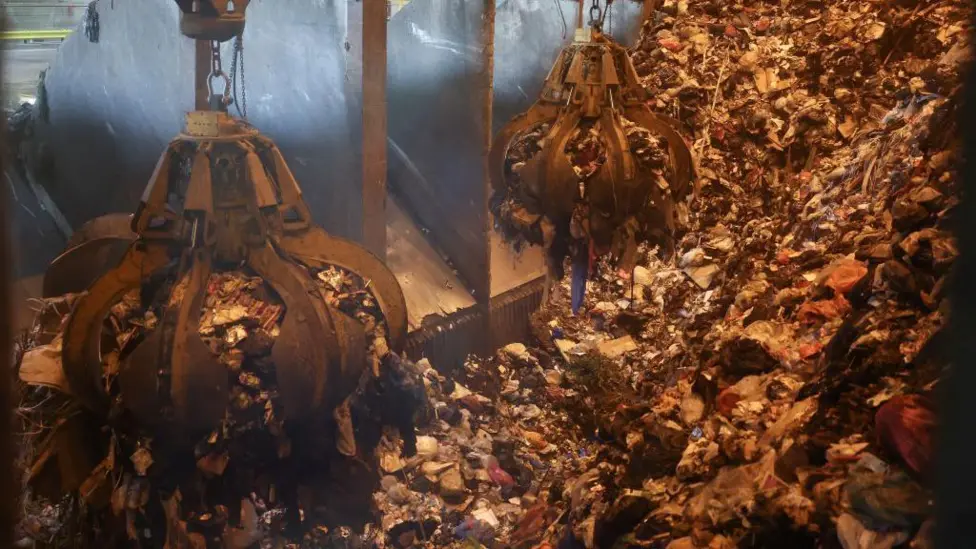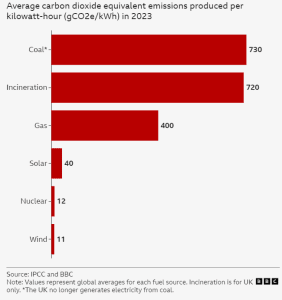Beyond the Headlines: Analysis of the BBC article on Plastic Waste Incineration.

The BBC recently reported on the emissions caused by plastic waste incineration, stirring up strong feelings and generating furious debate. Not least because it tends to sensationalise the headline and taps into the localised concerns around local incineration plants, with further battle lines drawn along accusations of NIMBYism.
Here is the original article: https://www.bbc.co.uk/news/articles/cp3wxgje5pwo
There is no doubt the headline itself “Burning rubbish now UK’s dirtiest form of power” is only now true because of the recent closure of the last coal fired power plant at Ratcliffe-on-Soar. Obviously compared to solar, wind and nuclear, burning anything is going to be “dirtier”. However I think the public at large would be surprised (maybe even shocked) to see the small difference between burning refuse derived fuel and coal:

But again the BBC has conflated two concepts here to deliver a narrative. With a headline that uses the word “dirty” but a chart that shows CO2 emissions, someone scrolling at speed could easily be “shocked”. In reality pollution goes far beyond CO2 emissions and the level and range of pollutants generated by coal by far out weighs those created from waste to energy. Unfortunately the article does again double down on the concept of dirtier later on by commenting in a sub heading that “Incinerators getting dirtier and bigger” but using CO2 as their metric of dirty, citing that incineration produces 175 times more carbon dioxide than burying in landfill. Again, of course, burning something generates more carbon, but burying non-biodegradable plastics isn’t exactly a “cleaner” option.
There is no doubt that continuing to burn plastics from general household waste or rubbish collected at household recycling suites that is difficult to recycle is not sustainable. You only have to visit your local tip to see the amount of plastics being sent for “energy recovery” is worrying. I would also argue it isn’t helped by the use of language here, is the intention to disconnect the concept of burning or incineration from the process so that the public feel better? However incinerators needs feedstock with a high calorific value to work effectively and it should be no surprise to anyone that plastics (made from oil) have a similar CV than other fossil fuels like coal.
So what are the solutions?
Where it feels this article has missed the goal is in the “so what are we going to do about it”. As is often the case for spectators from outside the recycling industry, they are very good at pointing out the problem but rarely offer a solution.
In our recent case study we highlighted the commercial and environmental benefits of diverting plastics from general waste prior to incineration. (Read the Case Study here) In essence addressing the root cause of the problem highlighted here. We have also talked at length about the upcoming UK Emissions Trading Scheme Scope Expansion in 2028 which is specifically targeting this issue. Even this week we posted about the ongoing fight against illegal exportation of used tyres to India which is undermining the use of rubber chips in waste to energy plants which have been proven to deliver better calorific performance without the same level of emission (read the article here).
Going as far as offering these up as solutions to plastic waste incineration may be a stretch but as with all issues around sustainability there is no single “silver bullet” and a combined and constructive approach will always deliver better long term results.
To talk to Clearpoint Recycling about how we can help find a viable route to market for diverted plastic waste get in touch below:
